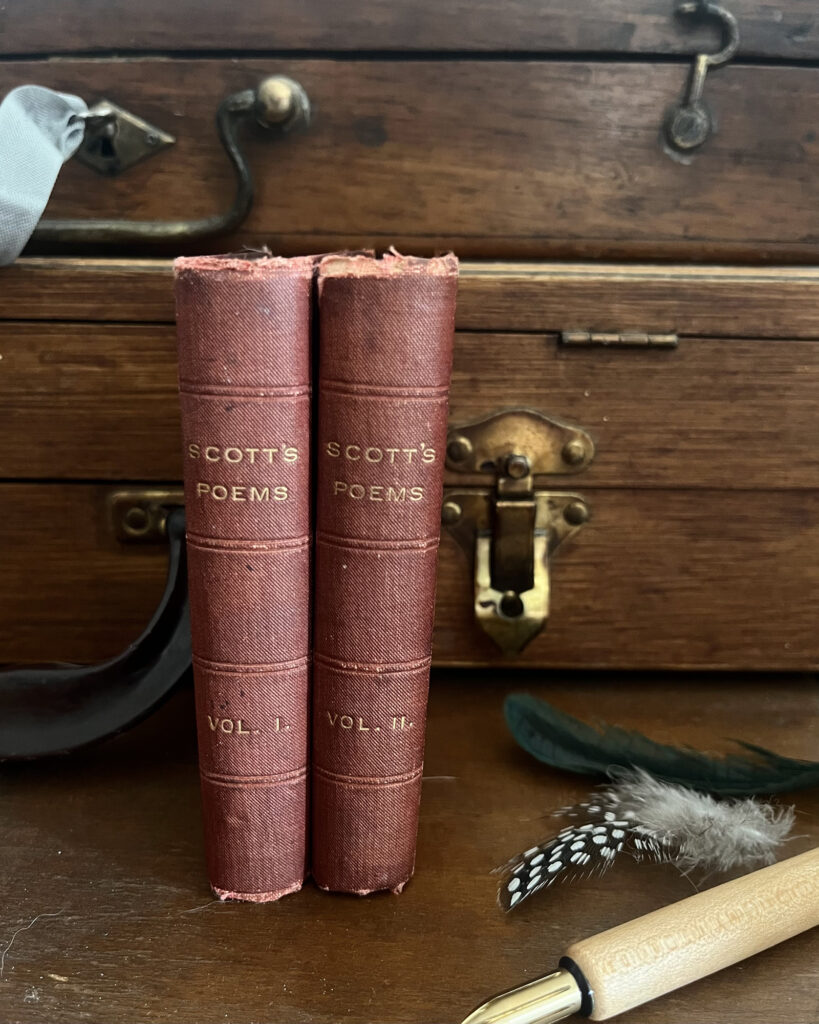The CMP Review — Week of March 4
March 4, 2024

“Patient Observation.—Let me again say that this is due from us, and is not a thing we may take up or leave alone as we think fit. Let each of us undertake the patient, unflagging, day-by-day observation of the behaviour of sparrow, spider, teazel, of clouds or winds, recording what we ourselves have seen, correcting our records as we learn to be more accurate, and being very chary of conclusions. All we find out may be old knowledge, and is most likely already recorded in books; but, for us, it is new, our own discovery, our personal knowledge, a little bit of the world’s real work which we have attempted and done. However little work we do in this kind, we gain by it some of the power to appreciate, not merely beauty, but fitness, adaptation, processes. Reverence and awe grow upon us, and we are brought into a truer relation with the Almighty Worker.” (Vol. 4 Book 2 pp. 101–102)
@tessakeath
March 5, 2024

Have you ever encountered difficulties when applying the Charlotte Mason method? I know I have. And I know of an educator one hundred years ago who was convinced that, “because of one or two particular difficulties,” the method simply could not work at their schools.
In the face of such detractors, a teacher devoted to Mason’s method pointed the way to the “disappearance of difficulties.” Her name was Daisy Golding, and her talk focused on narration. We share it today as part of our series of vintage articles on topics related to narration; however, Golding’s approach to solving difficulties extends well beyond narration.
Sometimes we hear of a kind of Charlotte Mason perfectionism. That if we are not doing it all, we are not doing it at all. Golding hit that question head on. Are we meant to be “adhering literally to everything”? Find out in Daisy Golding’s article which was published and annotated while Charlotte Mason was still the editor of the Parents’ Review. Read or hear it here.
@artmiddlekauff
March 6, 2024

This 2-volume set of Scott’s Poems are the smallest books in my library, measuring 2.75″ x 4.25″. They were originally a New Year’s gift from G. T. B. to F. C. Borer in 1880 before being presented to me by a dear friend. Prior to Charlotte Mason, my only acquaintance with Sir Walter Scott was in my 20’s when I’d eagerly pull Lady of the Lake off a coffee house shelf on lazy afternoons. Miss Mason taught me to love him for many reasons… not least of all for his admiration of Jane Austen. He was one of her favorite authors and she returned to his novels over and over.
A fun tidbit: Scott wrote by a handful of pen names before losing his anonymity. Among them were Jebediah Cleisbotham, Crystal Croftangry, Malachi Malagrowther, Lawrence Templeton, and Captain Clutterbuck!
My boys both enjoyed Ivanhoe in high school. Outside of his journals (which are great fun) and poetry, I’ve only read Waverly, after Charlotte’s references piqued my curiosity. Are you a lover of Sir Walter Scott’s writing?
@rbaburina
March 7, 2024

Exams are an intrinsic element of the Charlotte Mason method. “Knowledge is acquired only by what we may call ‘the act of knowing,’” she explains, “which is both encouraged and tested by narration, and which further requires the later test and record afforded by examinations.” So exams are not for testing. They are for knowing.
When I homeschool my son, we work side-by-side — whether the task is building a sloyd model, memorizing a poem, or… taking an exam. When we sit down to exams, we work silently and independently. Each of us, in our own separate way, performs our final act of knowing. Last week we finished our study of Othello. It was the first time I had ever read or watched the play.
In the months that our family read and narrated Othello, we discussed little. We were appalled by the story but we didn’t really analyze it. Then I was there with the exam question: “Who can be considered the main villain of Othello?” I stared at the blank page with pencil in hand and I thought.
I thought about how Mason wrote that “Shakespeare makes no mistakes in psychology.” I thought about how Iago was outside the range of human psychology. I thought about whether Shakespeare, who always portrays people so carefully, made a mistake this time. Then in a flash it dawned on me. The exam was doing its work. “Iago,” I wrote, “seems to me to be a symbol of the devil.”
I elaborated on the point and then we both finished. As is our custom we silently traded papers. I read my son’s answers and he read mine. I began reading and then my heart stopped. “The main villain of Othello is Iago,” wrote my son, “who more or less acts like the devil.”
The exam was indeed doing its work, leading father and son by separate paths to a common destination.
@artmiddlekauff
March 8, 2024





It was a busy day, but we thought we’d squeeze in a quick 20-minute walk in the woods.
Even in winter, you can see more than you think you can, when on a short jaunt … if only you have eyes to see! ❄️
@antonella.f.greco
March 9, 2024

And while enjoying winter, we are also dreaming of spring!
Serafina has been working on painting bricks to put outside in the garden.
The subject matter? Favourite books, of course!
@antonella.f.greco
March 10, 2024

Henry Morris, the late Bible scholar and professor of civil engineering, wrote that “only God is able to perform miracles of creation.” He then examined the seven great signs of the Gospel of John from a scientific perspective. He considered how the simple molecular structure of water could be converted to the “far more complex molecular structure of freshly created wine.” He noted how the feeding of the five thousand transcended the law of the conservation of mass.
He hypothesized that Jesus created an “anti-gravitational force of unknown nature, enabling Him to walk on the surface of a stormy sea.” And Morris observed that “new bone, muscle, and other components” would need to be created for a man who had been unable to walk for 38 years to be instantaneously restored and able to support his own weight.
But at the end of the list, Morris cited the greatest sign of the seven. In the case of Lazarus, “not only were the limbs and eyes dead, but the whole body in this case, and for four whole days, so that putrefaction had set in. Nevertheless, at the creative word of Christ, all cells and functions were instantly restructured and reprogrammed, and even the departed spirit summoned again to the body, so that Lazarus lived.”
The words were so simple: “Lazarus, come forth!” But the work it accomplished was so profound. It is the title that Charlotte Mason chose for her poem about this great miracle of Christ. Mason, however, was not thinking about the restructured cells. She was thinking about the departed spirit. Read or listen here.
@artmiddlekauff